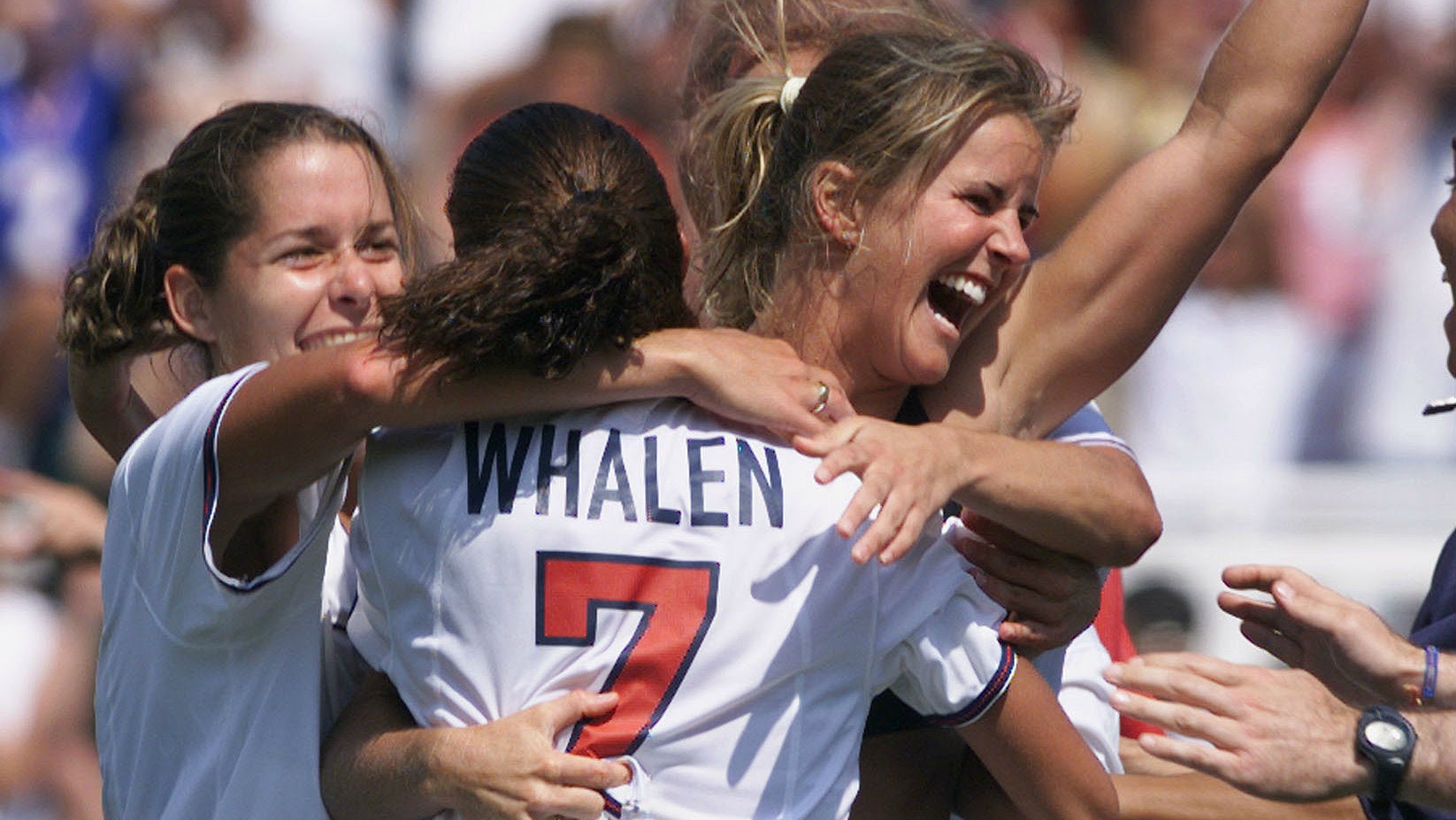A former Olympian’s advice for raising athletic kids without ruining their lives—or yours
Sara Hess knows the highs and lows of competitive sports. She played on the historic 1999 women’s world cup team (as Sara Whalen), which defeated China and put women’s soccer on the map. She went to the Olympics the next year, but stayed on the bench as the team won a silver medal. When she returned to the US to play professionally, two injuries led to seven surgeries and one infection which nearly killed her. Quitting was devastating.


Sara Hess knows the highs and lows of competitive sports. She played on the historic 1999 women’s world cup team (as Sara Whalen), which defeated China and put women’s soccer on the map. She went to the Olympics the next year, but stayed on the bench as the team won a silver medal. When she returned to the US to play professionally, two injuries led to seven surgeries and one infection which nearly killed her. Quitting was devastating.
She has no regrets.
“You are doing the most fun thing ever, competing at the highest level with your favorite people. Everyone is sacrificing the same things, every commitment makes the package that much sweeter,” she said.
Hess has three children now, and she is a psychologist. Not surprisingly, a lot of families, and children, come to see her about conflicts involving sports. She sees parents who want the kids to step up the intensity, and kids who are remarkably burned out.
“Kids get so smothered they don’t even know if they like the sport or not,” Hess said.
She is the first to admit seeing your kids play can ignite some pretty intense feelings. “It hits you on a thousand different emotional levels—if they are good, if they are not good, if they love it, if they are not interested.”
But she also has perspective, from her own years playing, from her husband, who played professional lacrosse, and from her practice.
Here’s some advice.
It’s not about the outcome, but the work
Hess says one of the biggest shifts she’s seen in parenting is a change from celebrating the child’s effort for the sake of it to making the outcome paramount.
“It’s assumed you put in the work, and if you don’t win it’s a disappointment,” she said. “It’s a recipe for anxiety disorder.”
Parents ask kids about a grade rather than focusing on the three hours put into studying; they discuss the final score, and not how a child played or felt about his or her performance.
This flies in the face of 40 years of research showing that praising kids’ efforts, and not their abilities, helps them to build resilience. Stanford University’s Carol Dweck pioneered the work that distinguished the “growth mindset” from the “fixed mindset”: kids who believe talent or IQ are inherent (“fixed”) don’t try as hard as those who believe that effort counts more than ability (“growth”).
“I try to remind parents, let’s pay attention to what they are doing,” Hess said.
Find the people to give you perspective
We all go a little bit nuts sometimes, and Hess is no different. When her young son’s soccer coach recommended he step it up with a more competitive club, Hess agreed. But the commitment got a bit intense for everyone. “I was being crazy,” she admits.
She decided to step outside the soccer bubble, where everyone has an opinion and there is a lot of judgment about what the “right” level of commitment should be for a kid. That meant asking less competitive friends, or someone who might be a bit further down the parenting chain, for advice.
Hess uses her mother. With her, she says, “I can have a more sane conversation.”
Constantly re-assess
The goal, especially with young kids, is to foster a love of sports, not to jumpstart the Olympic training. “If the kids don’t want to do it, it won’t go well,” she says.
That means constantly re-assessing whether the level of sport, or mix of sports, is working, Is the child improving, and enjoying it? Is the family paying too high a price for one child’s sport at the expense of the others? Are they overworked, and even having fun?
Hess said her own kids face a lot of pressure—from others. “People assume they will be all-stars because of our backgrounds,” she said. They absorb this, and ask her all the time, “What if I want to go to the Olympics?”
She says she will support them if it’s what they want: “I will ride that train anywhere.” Her daughter loves gymnastics, a sport she knows nothing about, and her kids are notably not competitive.
But, she says, there’s a steep price for those who push too hard. “If you keep pushing, you lose the kid, and you lose the sport.”